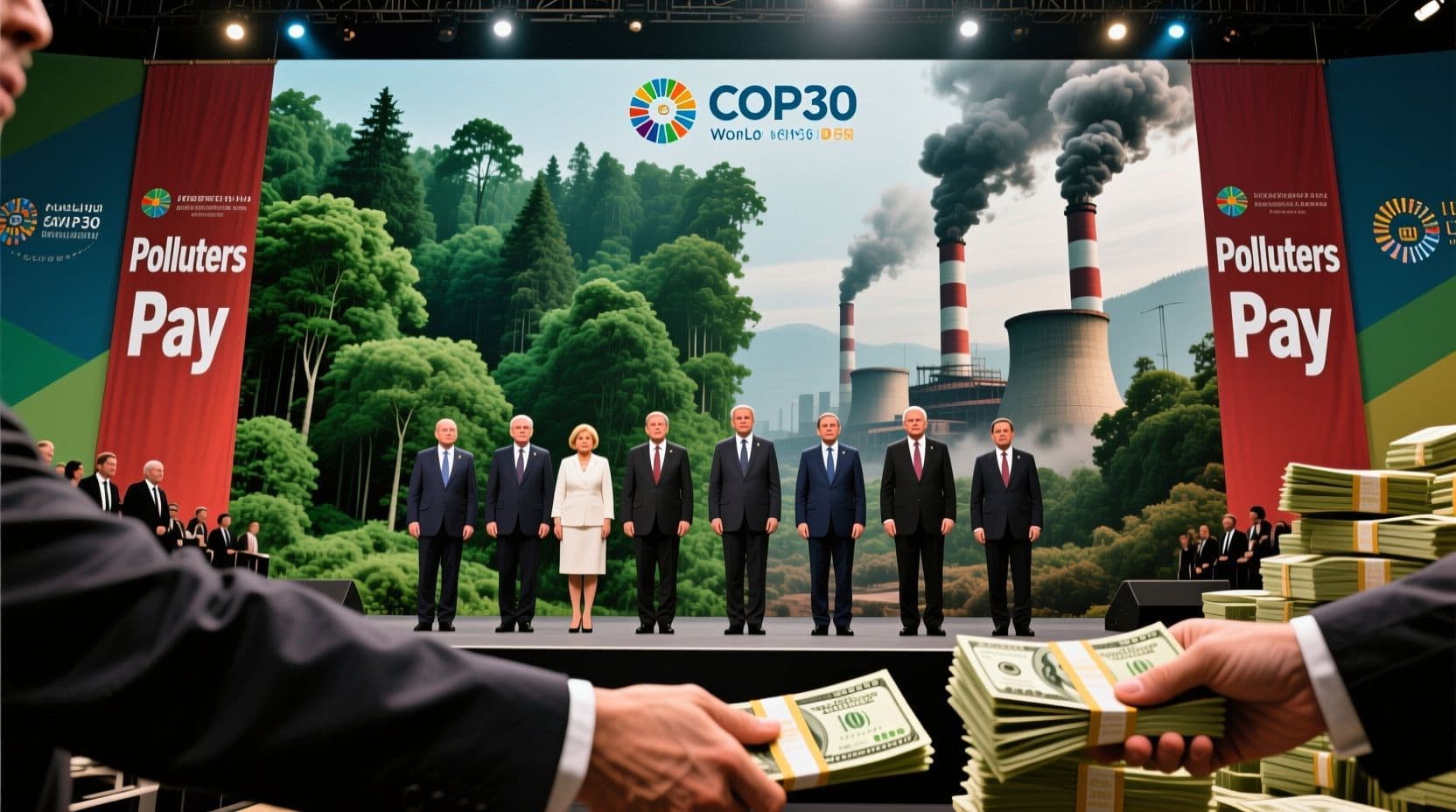The Lead Story
COP30 Wants Big Oil to Pick Up the $5 Trillion Tab
The road to COP30 in Belém is getting expensive, and not just for delegates. A new study cited by Greenpeace International says ExxonMobil, Chevron, Shell, BP and TotalEnergies could owe a staggering US $5 trillion in climate-related damages linked to their post-Paris Agreement emissions. With UN member states simultaneously drafting a global tax convention, an initiative that echoes recent shifts in global tax policy as seen in comprehensive tax reform legislation, momentum is building to turn that eye-watering figure into very real revenue.
Oil majors have long argued they already pay their fair share. But Stanford and University of Delaware researchers used the U.S. government’s social-cost-of-carbon model to price everything from flooded farmland to higher hospital bills. The resulting “Polluters’ Climate Bill” is now a powerful prop for negotiators who want a dedicated levy on fossil-fuel profits. “Communities are footing the bill while polluters pocket the profits,” Greenpeace contends.
Talk of a levy dovetails with separate findings from the South Centre. As detailed in a Tax Justice Network blog, oil-and-gas multinationals shift roughly 34 % of their true profits to low-tax jurisdictions, leaving developing nations down up to 7 % of GDP. The reaction was swift: several African and Latin American negotiators told the outlet they will push for stronger anti-avoidance clauses inside the draft UN convention.
Why It Matters
If adopted, a global “polluter pays” regime could reshape two pillars of international tax: extractive-sector incentives and transfer-pricing norms. Tax professionals are concerned because the levy would be layered on top of existing corporate-income taxes, carbon prices and royalties,creating brand-new compliance headaches across upstream, midstream and trading entities. For more insights on modern digital tax services and evolving compliance requirements, see our detailed guide to the Nigeria Tax Administration Act, 2025.
Around the Tax World
• Reeves’ Revenue Riddle: UK Chancellor Rachel Reeves is refusing to rule out hikes to income tax, NI or VAT ahead of her 26 November Budget, Sky News reports (Sky News).
• Maple Leaf Makeover: Canada’s 2025 Budget proposes automatic tax filing for low-income residents and a corporate “super-reduction” that drops the marginal effective rate to 13.2 %, below both the U.S. and OECD averages (Global News).
• Safe Harbor Surge: The UAE and Switzerland rolled out fresh transfer-pricing safe harbors, signaling that the arm’s-length principle is losing traction, according to Bloomberg Tax.
• AI Meets TP Audits: Clients in Hungary face sharper TP scrutiny, so DLA Piper is harnessing AI to spot risk patterns, Péter Király told International Tax Review.
Tax Stat of the Day
Prime Number: 5,000,000,000,000 , the dollar value of projected climate damages tied to just five oil majors’ post-2016 emissions, per Greenpeace’s analysis.
Looking Ahead
All eyes are now on UN negotiators, who meet again in December to fine-tune the first draft of the international tax convention, just three weeks after Reeves unveils her UK Budget. To learn more about the foundations and evolution of tax systems, explore our Introduction To Nigerian Tax Laws.
Prepared by MyTax - mytax.com.ng
